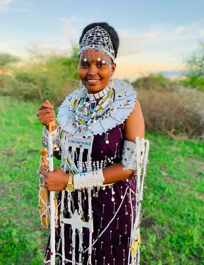Improving Health Outcomes for Village Businesswomen and Their Families

Life in a Maasai Village in Tanzania is never easy but WMI’s goal is to help level the economic playing field for the women who live there. To amplify the impact of the business loans and training WMI provides to rural women in East Africa, WMI partners with local organizations, such as a school or health clinic, to get village women the essential services they need.
WMI is working with Naiborr Omom Initiatives (NOI) in Nainokanoka Village in the Ngorongoro Conservation Area near Arusha, Tanzania, to fund three community health interpreters who assist at the Health Center and local dispensaries. Most of our village women speak only Maa, the local language, while the health professionals speak only Swahili. This language barrier discouraged our borrowers from seeking natal health care and increased the likelihood a woman would give birth at home, far from emergency medical care. When the women did seek medical care, they reported feeling intimidated by the health care professionals. Because of these negative experiences, many Maasai women would not use the services at the health clinic.
In the four months since the WMI-funded interpreters started working, the village has seen a huge uptake in health care services. In addition to providing one-on-one interpreting, the interpreters go out into the community to conduct health classes, especially pre- and post-natal education. They also initiated a school-based program to provide students with health care education that they, in turn, share with their parents.
This service has played an important role in changing attitudes. We are already seeing:
• Families understanding the problems associated with the practice of female genital cutting (FGC) and publicly pledging not to cut their daughters. Young men pledging to marry an uncut girl now that the stigma of being uncut has been reduced.
• A 66% increase in the number of women going to the health center to give birth due to improved trust between the health workers and the community.
• An increase from 12 women/month to 100 women/month seeking family planning counseling. Women report they feel empowered and gender-based violence has been reduced.
• Women are adding fruit, vegetables, and nutritious grains to their diets to reduce complications resulting from deficiencies in iron and folic acid. They also have learned that undereating to keep a baby small for an easier delivery is not good for either the mother or the child.
• Healthier women are more able to run successful businesses.
WMI is gratified that such a small investment has had such a huge impact on the community and strengthened the loan program as well. Small community engagements can result in improved outcomes across the board.